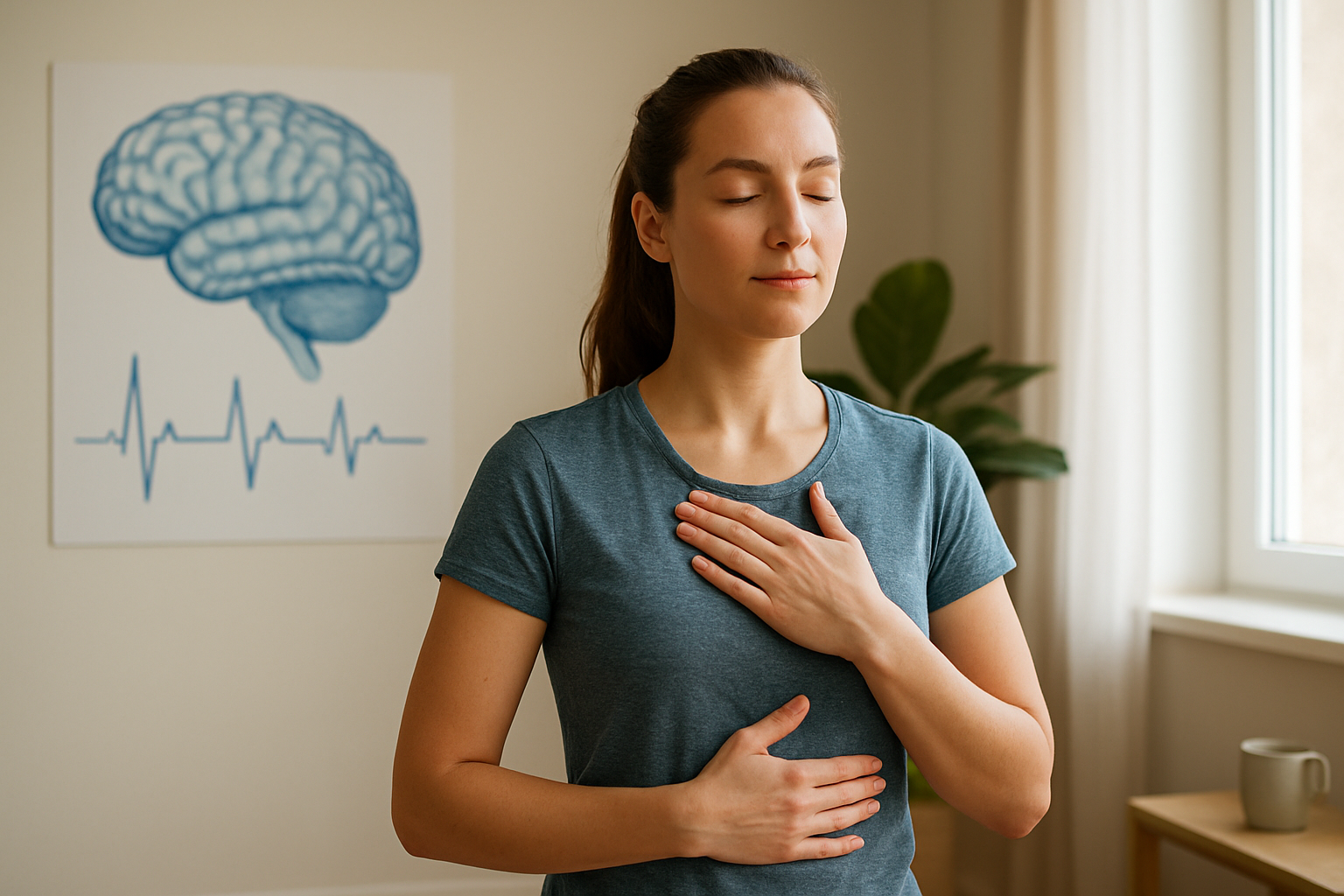Breathing is something we do about 20,000 times a day without thinking. Yet, for decades, scientists have been discovering that how we breathe has a direct impact on both our physical and mental health. The way we inhale and exhale influences the brain, the heart, the immune system, and even our emotions. Understanding the science of breathing gives us a powerful tool for improving our well-being.
Why Breathing Matters More Than We Think
Breathing is not just about bringing oxygen in and removing carbon dioxide. It is also about communication between the body and the brain. The rhythm of our breath sends signals to the nervous system that affect heart rate, blood pressure, and stress hormones.
In 2017, researchers at Northwestern University published a study in Journal of Neuroscience showing that the rhythm of breathing directly influences brain activity linked to emotions and memory. This means that our breathing patterns do not just keep us alive — they shape the way we feel and think.
The Brain-Body Connection
The nervous system has two main branches: the sympathetic system, which prepares us for action (the “fight or flight” response), and the parasympathetic system, which calms us down (the “rest and digest” response).
Breathing is one of the few body functions that we can control both consciously and unconsciously. When we take slow, deep breaths, we activate the parasympathetic system, calming the body and reducing stress. Fast and shallow breathing, on the other hand, activates the sympathetic system, increasing alertness and tension.
A study in Frontiers in Psychology (2018) showed that participants who practiced slow breathing for just 10 minutes experienced reduced anxiety and improved attention.
Physical Benefits of Conscious Breathing
- Heart Health – Slow breathing has been shown to lower blood pressure and improve heart rate variability (HRV), a measure of cardiovascular health.
- Immune System – Deep breathing reduces stress hormones like cortisol, which in high levels weaken immunity.
- Pain Relief – Research published in Pain Medicine found that breathing exercises reduce the perception of pain by activating brain regions involved in pain control.
Mental Health Benefits of Breathing
- Stress Reduction – Breathing techniques are now part of many therapies for anxiety and depression.
- Improved Focus – Slow breathing increases activity in the prefrontal cortex, the area responsible for concentration and decision-making.
- Emotional Regulation – Breathing helps balance activity in the amygdala, the brain’s emotional center.
Simple Breathing Techniques You Can Try
Here are some easy techniques supported by research that you can practice daily:
1. Diaphragmatic Breathing
- Place one hand on your chest and one on your belly.
- Inhale through your nose, making your belly rise (not your chest).
- Exhale slowly through your mouth.
- Repeat for 5–10 minutes.
This technique activates the parasympathetic system, reducing stress.
2. Box Breathing (Used by Navy SEALs)
- Inhale for 4 seconds.
- Hold for 4 seconds.
- Exhale for 4 seconds.
- Hold again for 4 seconds.
This method improves focus and calmness under pressure.
3. 4-7-8 Breathing
- Inhale through the nose for 4 seconds.
- Hold the breath for 7 seconds.
- Exhale through the mouth for 8 seconds.
This exercise is especially useful before sleep.
How to Make Breathing a Daily Habit
- Set reminders to practice deep breathing for 5 minutes, two or three times a day.
- Use breathing apps or even your phone’s timer.
- Combine breathing exercises with meditation, yoga, or short walks.
The key is consistency. Even short daily practices can reshape the nervous system and improve both physical and mental health over time.
A Breath for a Healthier Future
Science continues to show that something as simple as breathing can transform health in powerful ways. Instead of thinking of breathing as automatic, we can view it as an active tool — one that calms the mind, protects the heart, and strengthens resilience.
Every inhale and exhale is not just survival. It is a chance to reset your brain, body, and emotions.
